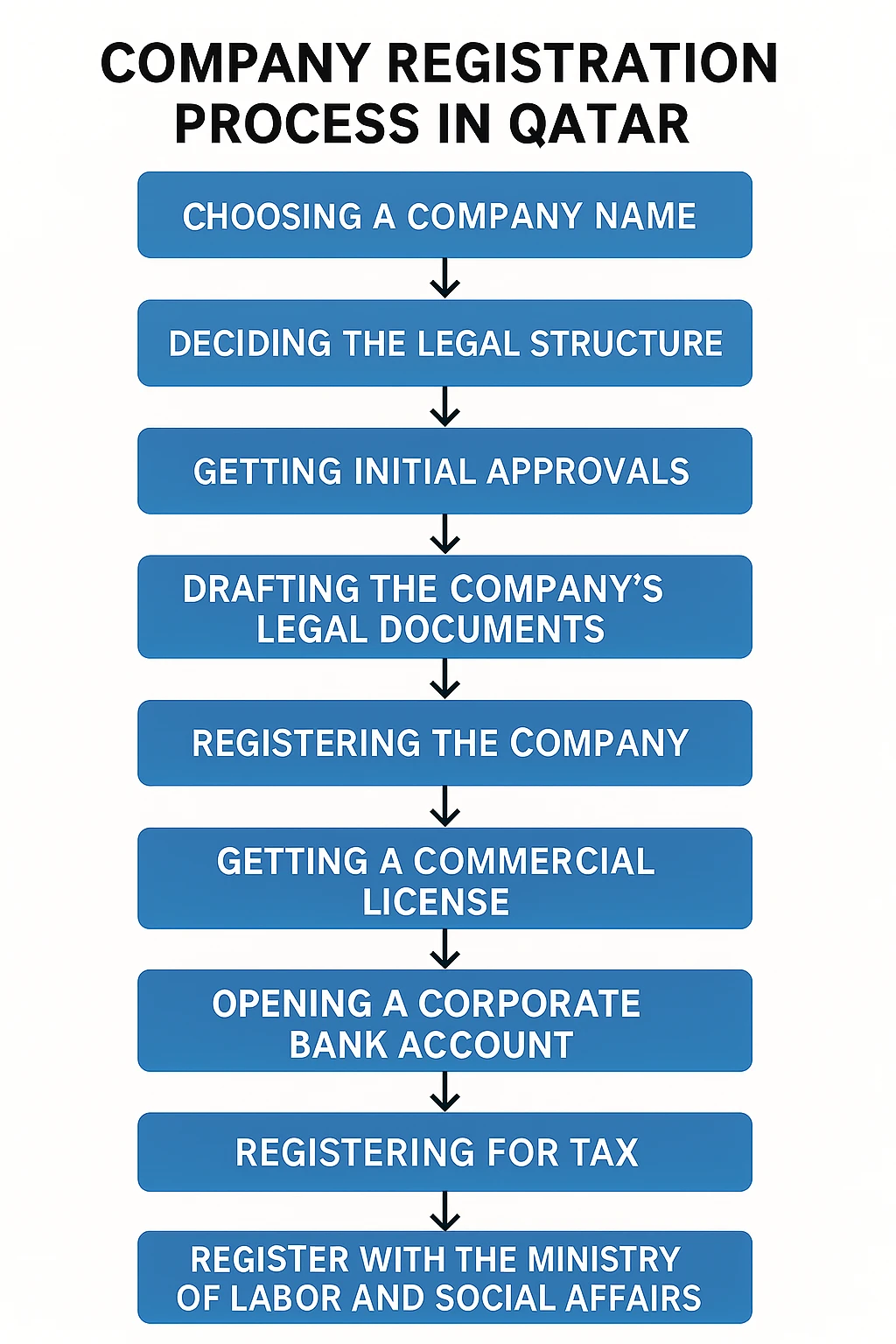July 07, 2025
Posted by: admin_perfect
Categories: Business, Uncategorized

Starting a company in Qatar is a great opportunity for investors and entrepreneurs who want to be part of one of the fastest-growing economies in the Gulf. Setting up a business requires following several legal steps, but with proper guidance, the process can be clear and hassle-free.
Here is a detailed guide to help you understand how registration of a new company in Qatar works.
The first step is selecting a trade name. The name must be unique and must not already be registered by another business. Once you decide on a name, it must be reserved through the Ministry of Commerce and Industry. This step usually involves a small government fee.
Qatar allows various types of company formations. One of the most common structures is a Limited Liability Company (LLC). An LLC requires at least two shareholders and a minimum capital of QAR 200,000. Other options include joint stock companies, representative offices, and branch offices of foreign companies.
The type of company you choose will affect ownership limits, liability rules, and how the business is managed.
Before registering the company, some businesses need special approvals depending on the industry. For example, companies involved in banking, legal, or energy services may need extra permissions from the relevant government bodies.
This step helps ensure that the business activity complies with the legal and regulatory framework of Qatar.
The company must prepare legal documents such as the Memorandum of Association and Articles of Association. These documents list important details like the name of the business, its objectives, information about shareholders, and how profits will be shared.
Once drafted, these documents must be signed by all shareholders and notarized by the relevant authorities in Qatar.
After the legal documents are ready and approvals are in place, the next step is registering the company with the Ministry of Commerce and Industry. This involves submitting all necessary documents, including copies of the shareholders' identification, proof of reserved trade name, initial approvals, and the notarized legal documents.
Once the registration is approved, the company becomes a legal entity in Qatar.
After the registration is complete, the company must apply for a commercial license to begin operations. This license will mention the company’s approved activities and will need to be renewed annually.
The commercial license is an essential part of running a business in Qatar, and operating without one is not allowed.
To manage finances, the company must open a bank account in Qatar under its registered name. The bank may request the company registration certificate, commercial license, and copies of shareholder documents.
A corporate bank account is necessary for receiving payments, paying expenses, and handling tax obligations.
All businesses must register with the General Tax Authority in Qatar. Companies are expected to submit tax returns and pay corporate taxes as required by law. Currently, most companies are subject to a flat corporate tax rate of 10%.
Proper tax registration ensures the company complies with the country's tax regulations.
To employ foreign workers, the company must first be registered with the Ministry of Labor and Social Affairs. This registration is essential for securing work permits for employees.
In addition to regular onshore businesses, Qatar also allows offshore company formation. Offshore companies follow a similar setup process but may benefit from different rules related to taxes, ownership, and location.
Setting up an offshore company still involves reserving a name, submitting legal documents, and registering with the authorities, but the overall setup may be more flexible depending on the nature of the business.
Whether you are setting up a local company or an offshore business, understanding these steps will help you start strong and stay compliant with Qatar's legal and regulatory framework.
Company formation in Qatar involves multiple legal steps, from choosing a name and deciding the structure to securing licenses and registering with government authorities. While the process might seem complex at first, proper planning and professional support can make things much easier.
Whether you are setting up a local company or an offshore business, understanding these steps will help you start strong and stay compliant with Qatar's legal and regulatory framework.
Contact us at the Consulting WP office nearest to you or submit a business inquiry online.
ContactSince Consulting WP’s founding in 1985, strategy has been our core business. We work with companies in every industry to develop strategies that deliver results.
